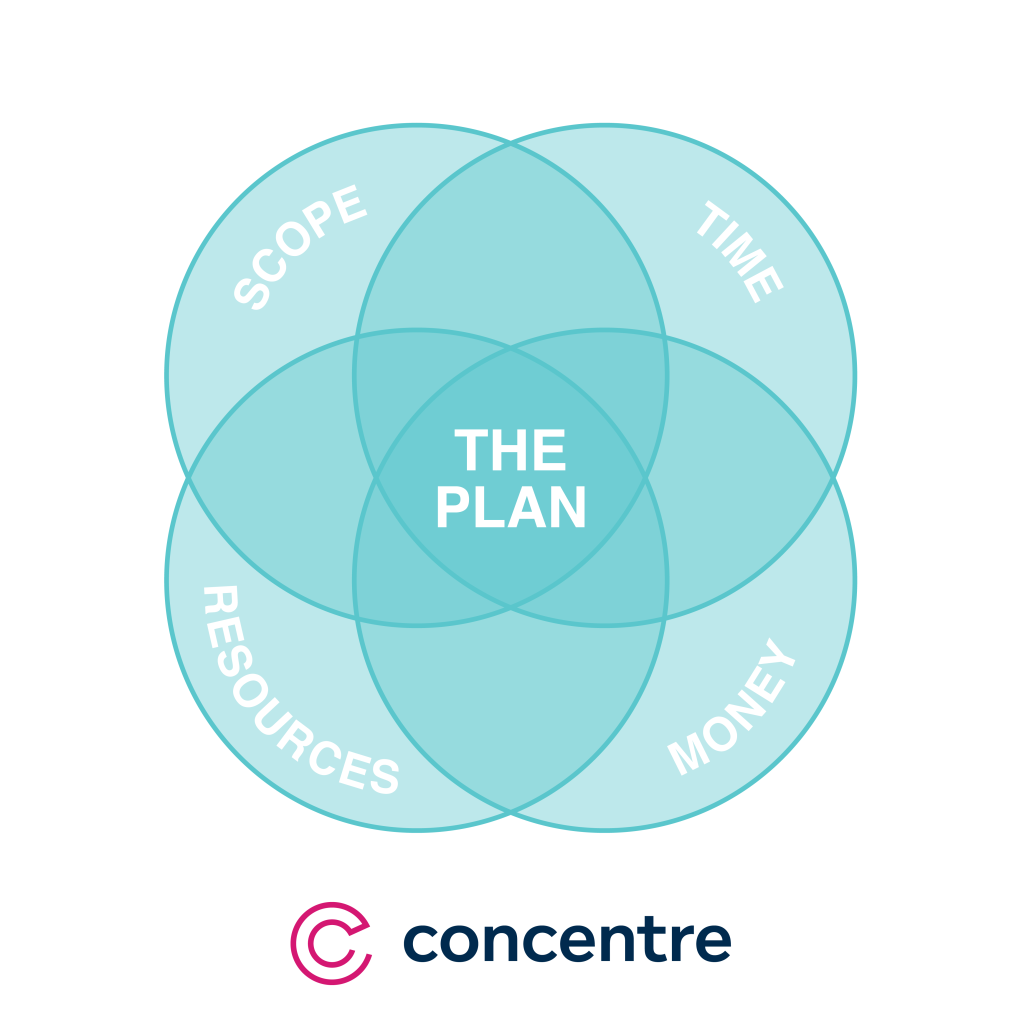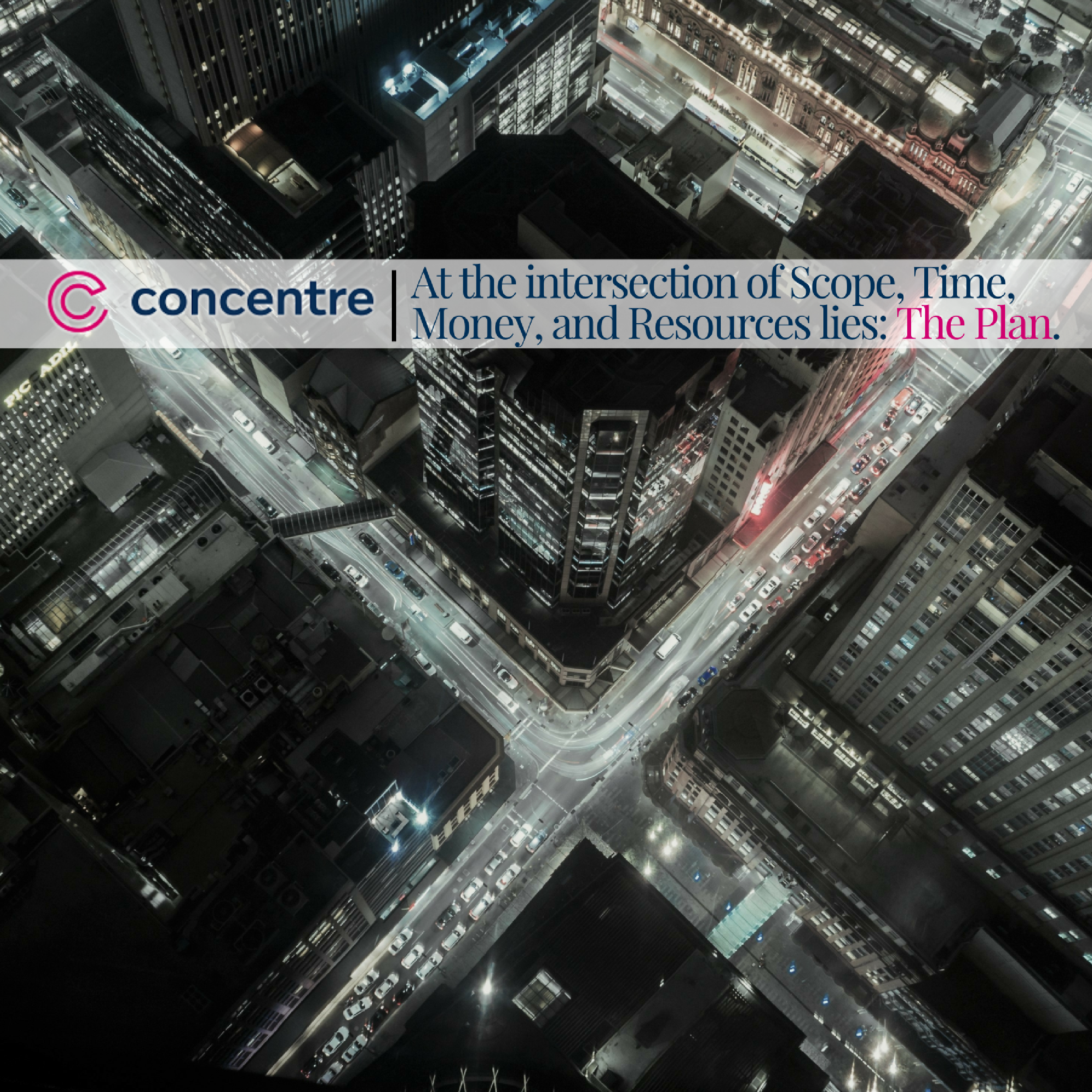
For many businesses, this is the time of year that is taken up with discussions on annual planning. On one end of the spectrum, some companies we have worked with have started their process in July and are wrapping up by the time October comes around. For others, annual planning can bleed into the new year. To some on the edges of the process, it can come across as an arbitrary, administrative exercise. However, not having a plan can be significantly more expensive than the investment of time required to have one in the first place.
Plan Elements
At the intersection of scope, time, money and resources is THE PLAN. As planning begins it is important to align everyone on how success is measured. If the company or team culture is that success occurs when all elements of the plan are achieved, then the elements must be practical and predictable. If success is defined by getting as far as possible in the proposed direction, then the plan should be more aggressive than predictable, and the team must understand that if you shoot for the moon and end up in the stars, it was still a successful plan.

Scope:
What are we going to do?
Time:
When are we going to do it?
Resources:
Who is going to execute the plan and what do they need to be successful?
Money:
How much is it going to cost?
Plans can differ depending on the timeline that the plan covers. An annual plan will include operational details on resourcing and financial impacts, whereas a five-year plan is more focused on the major elements of a roadmap – what will happen first, second, then third – along with a very high-level understanding of costs.
“No Plan” Pains
There are many benefits to planning, but sometimes it helps to discuss the challenges a company might face if they decide to forgo the event altogether.
Without annual planning…
- You cannot know if your team is working on the right things and moving in the right direction. A plan will force a clear decision and understanding of what is important and what the priorities are within the organization.
- You will not be able to easily execute cross-team programs. Any program or project which requires help from other teams will be stuck waiting for help based on the other team’s priorities rather than synchronizing needs at the beginning of the year.
- You will not be able to hold your leaders or teams accountable. If there is no plan, there is nothing to set the standard for success.
- You will lose the passion in your team. A plan gives them direction on what you are trying to achieve, a direction they can then be passionate about. Without the plan, you are merely reacting.
- You won’t be able to articulate and make trade-offs when the next “big thing” comes along. Plans rarely last their full terms without some level of change. However, without a starting point, it is impossible to communicate what you will not do so that you can take on that new project or priority.
Planning and the difficult, crucial conversations that come with setting priorities are skills that can be learned and embedded in the team over time. However, like any other set of skills, they need to be exercised and grown to be successful. Don’t waste any more time, resources or money by not having a plan. Start the process with your company now and make 2017 one of the most successful years to-date.



